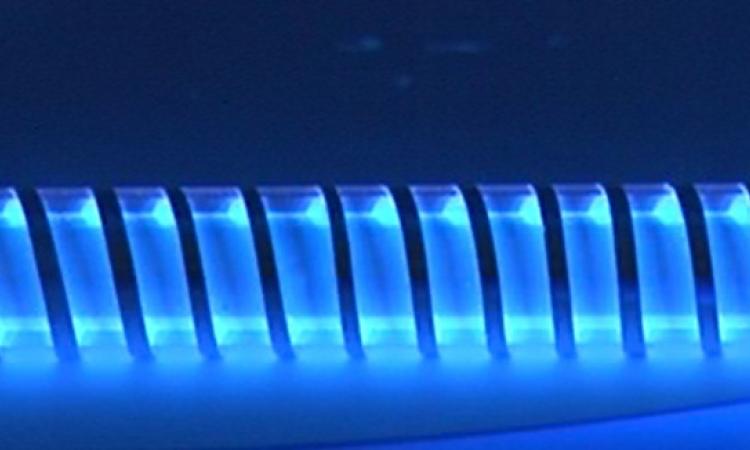
The use of ultraviolet lamps in water purifiers is common but the presence of mercury in these lamps could be potentially hazardous. Now a group of Indian scientists have developed a mercury-free ultraviolet lamp that can be used in water purifiers.
Scientists have engineered an optimised dielectric discharge based mercury-free Vacuum UV/UV light source for water sterilisation. The lamp can produce the desired level of wavelengths for deactivation of bacteria within 10 seconds without the use of mercury.
The lamp has been developed by scientists from two CSIR labs--Central Electronics Engineering Research Institute (CEERI), Pilani, National Environmental Engineering Research Institute (NEERI), Nagpur--working along with Birla Institute of Scientific Research (BISR), Jaipur.
In addition to being mercury-free, the lamp has a filament-less light source and there are no end sleeves. Since it uses dielectric-barrier discharge or DBD source, start-up time is negligible. It has broader wavelength coverage due to dimer radiations and medium pressure.
Naturally available water may contain pathogenic organisms and toxic compounds. UV radiation is preferable for water purification over chemical treatment and is widely used for water sterilisation as it does not create any byproduct during treatment and does not alter the taste of water. It also does not eliminate minerals. But it has several disadvantages which include start-up time, filament failure, sleeve breakage, dimensional restrictions and non-reparability. Mercury-containing UV-lamps generate a considerable amount of toxic mercury waste at the end of their life as a typical UV lamp contains 20 to 200 mg of mercury.
"We have engineered an optimised dielectric discharge based mercury-free VUV/UV light source with a novel structural design that produces strong spectral bands peaking at wavelengths 253 nanometer and 172 nanometer along with a weak band peaking at wavelength 265 nanometer, that has been tested on a few representative bacteria to show its usefulness for efficient water sterilisation,” explains Dr Ram Prakash from CEERI.
The unique structural design of the lamp enables it to produce desired UV wavelengths. The lamp has been tested for five types of bacteria--E. coli, Shigella boydii, Vibrio, coliforms and faecal coliform. Within 10 seconds, all bacteria got deactivated. “The lamp has been tested further for water with turbidity level and its on-time efficiency has been found to be 200 percent as compared to standard equivalent mercury-based UV-lamp,” adds Dr Ram Prakash.
The results of the research work have appeared in the journal Scientific Reports. The research team included Dr Ram Prakash, Afaque M. Hossain, Dr U. N. Pal, Dr N. Kumar, Dr K. Khairnar, and Dr M. Krishna Mohan. (India Science Wire)
/articles/purify-water-safely